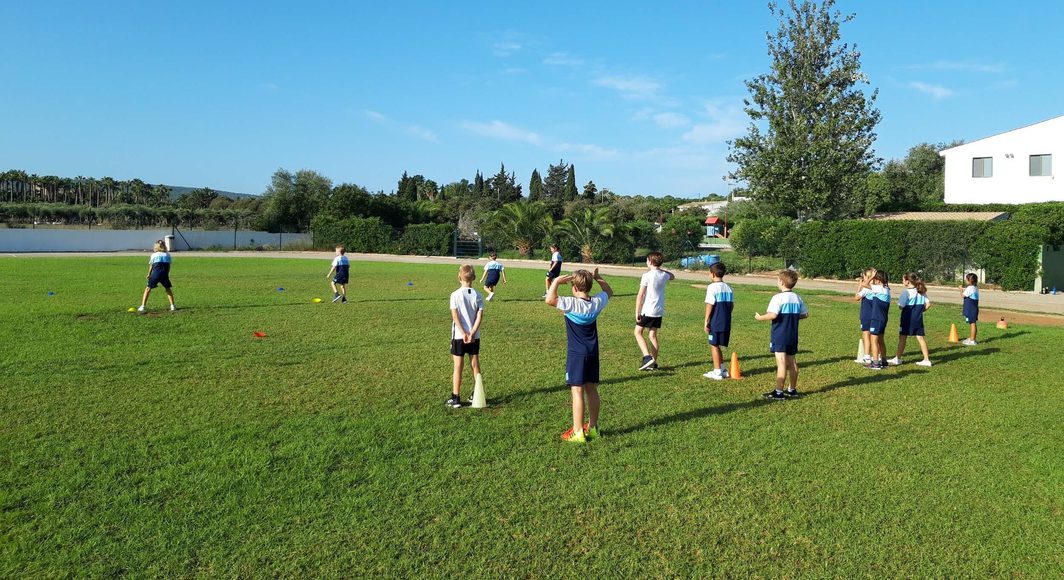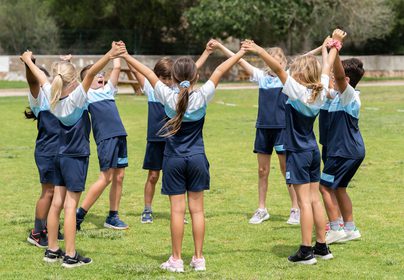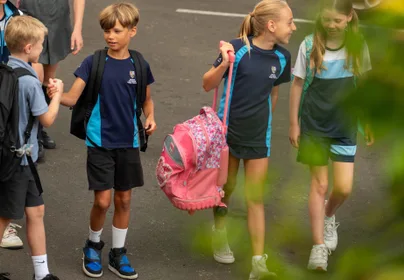A message from Alison Colwell, Principal
Dear Parents,
One of the most important elements of a great education is, in my view, a young person’s level of oracy. Being able to speak fluently, eloquently, confidently and with a wide vocabulary is essential when going out into the world to be successful – in the fullest sense of the word. One of the (many) reasons why I hate seeing young people glued to their phones is because I think it has, in many cases, negatively impacted on skills of communication. Technology, when used wisely and well, can obviously greatly enhance our lives, but to become addicted to a screen at the expense of engaging in exciting, fun debate is a tragedy.
At BIC we think promoting language and oracy in all lessons, and at all ages, is vital. Of course, the written word is important, but being able to communicate effectively in speech is a skill that is of far greater use, in whatever career our young people are aiming for. The current debating competition is an example of how we want to promote and encourage a great command of the spoken word in our students, and in all our lessons. Whenever I am in classrooms, I often ask the students a question, and always say to them that I want someone to answer, “without using the word like or basically!” “Like” has become constant, lazy punctuation, that has crept into too many people’s speech, and we should all be helping our young people to improve their oracy by abandoning such pointless words. It is something we should tackle together, picking them up whenever they use it and encouraging them (as Ms Tomlinson wrote so beautifully last week) to read more, widen their vocabulary, speak carefully and become the brilliant orators they are all so capable of becoming.
Kind regards
Alison Colwell
Principal, BIC Sa Porrassa
Mrs Alexandra Tomlinson - Head of Secondary
´´Rhetoric is the art of ruling the minds of men´´ Plato
The Ancient Greeks and Romans knew that the pathway to success was to ensure that they had a thorough and sophisticated understanding of Rhetoric and Oratory. Rhetoric - the art of skilled verbal persuasion and presentation of ideas - and Oratory - how eloquently those persuasive devices are employed - were considered the single most essential parts of the education of the ancient elite. The Ancients understood how crucial these were to success, in both private and public life. Sons of the noble families of Greece and Rome spent years perfecting their use and control of Rhetorical Device in order to become expert public speakers because those families comprehended the might of the spoken word in ensuring that they retained their influence and power.
This is a well known fact to leading public figures of today. Charismatic politicians, for example, are able to effortlessly employ Rhetoric to their advantage. Like him or loathe him, Boris Johnson is a successful orator. Johnson read Classics at Balliol College, Oxford and is well versed in those influential attributes so highly prized by Romans. Examples of his Rhetoric include frequent use of metonymy (he referred to Communism as ´moonshine that will make you blind´), puns (´´Let´s get Carbon-free by 2050, and Corbin-free by Christmas´´) and hyperbole (´´To keep insisting that the EU is about Economics is like saying that the Italian Mafia is interested in olive oil and real estate.´´). Oratory which is inflammatory and divisive - but nevertheless richly magniloquent.
Understanding Rhetoric liberates us. It is used in all media attempts to manipulate and in all state attempts to control. It is at the heart of propaganda, advertising, Internet trolling and consuming. It empowers you for rigorous and constructive debate and grants insight on what constitutes one. It allows you to see through the smoke and mirrors and provides the first line of defence in a world of half truths, illogical argument, supposition and conspiracy.
Alexandra Tomlinson
Head of Secondary
English Department news
Oracy is about making meaning, of fluent and accurate communication, of building narrative. In her book Reclaiming Conversation, Sherry Turkle writes of how teachers are in the classroom to teach students to ask questions and be dissatisfied with easy answers; learning is about more than answers, it’s about working out meaning. Conversations - speaking and its partner, listening - help learners to build narratives, to learn and remember in a way that has meaning for them.
This is especially true in the English classroom. Talk might be used to help students to make sense of their learning, to explore ideas and challenge thinking, or to say how they know what they know. Our job as English teachers is to give students opportunities to communicate their ideas, to listen to others’ points of view, and to feel encouraged in doing both. In this way, students can develop confidence in using their own voices and their own words, while also understanding that there are other ways of thinking, that others might make meaning of the world in a different way. From here comes oracy, a skill which we English teachers aim to instil in every student we teach.
Teaching and learning in current times offers challenges, but the students have returned to school speaking clearer, louder and more accurately, keen to share their ideas, for their voices to be heard as they communicate with their teachers and peers. Some students - and teachers - have taken risks by attempting the accents in Louis Sachar’s American novel, Holes or William Shakespeare’s Scottish play, Macbeth. Body language has become more important, as has tone and pitch of voice where facial expression is more obscured, and many students have developed in these areas over the course of three short weeks.
Of course, oracy is more than a way of making meaning: it also involves the powers of persuasion, the craft of presentation. We are building up to a debating competition for Years 7 to 11 - and the Rotary inter-school debating competition for Years 9 to 11 - in which students will present, debate and challenge, developing understanding of other ways of thinking while having courage in their convictions. Much as the children have raised their voices in class, we are looking forward to seeing them rising to the challenge of presenting and debating over the coming weeks.
Gemma Austin
Head of English
Languages department news
'Día Europeo de las Lenguas' - 'European Day of Languages' - 26th September 2020
As a specialist languages teacher at Baleares International College, part of the Orbital Education Group, I believe that enabling children to grasp the foundation knowledge and skills they will be using for the rest of their lives is an extraordinary gift.
An outstanding and passionate education is, in my belief, the most important element we can impart to our younger generation. As a reflective and enthusiastic practitioner, I am dedicated to enabling young minds to develop and achieve their full potential, and ensuring we provide them with the necessary tools to do so.
The opportunity of learning several languages becomes crucial in today’s global society within the European context. Languages define personal identities but they also help us to understand the shared cultural inheritance. Languages help us to build bridges with people from all cultures and promote mutual understanding and shared sense of European identity.
Broader multilingualism can strengthen the opportunities within our society. Language skills contribute to social and professional development as well as to solidarity through enhanced intercultural dialogue and social cohesion.
As an international school, at Baleares International College we take pride in offering our students a range of opportunities in language learning. In addition to the core British curriculum, we provide an extensive language programme to offer native language lessons throughout the school for Spanish, Catalan, German and French, all of which are delivered by our specialist native-speaking teachers.
Language teaching is a privilege, we are at the forefront of these evolutionary times in Europe’s multicultural and growing society. For that reason, we need to continue rowing together and reinforcing the importance of languages (teaching and learning) in order to inspire together our new generations.
Lorena Herrero
Specialist Languages Teacher
Baleares International College
PTA Coffee Morning - 29th September
Dear families,
I hope you are all well.
Last school year we re-booted the PTA, and we remain determined to grow and develop it further.
We established four subcommittees to drive the work of the PTA - events; environmental awareness; induction and welcome; and an expertise committee, to draw on the wealth of experience and expertise in our parent body, for the betterment of the school and the students.
We are keen to welcome all our new parents to become involved. On Tuesday 29 September at 9.15 we will be holding a coffee morning, to welcome new families, explain a bit more about the PTA and how we want things to develop, and to provide an opportunity for new families to meet each other.
Please make time in your diaries to come along. To enable us to manage numbers and comply with restrictions, can you please email your attendance to office@balearesint.net.
Coffee and refreshments will be provided, but please do feel free to bring along any offerings of your own! We look forward to welcoming you. We also, of course, are keen to hear from all families who would like to become involved in the PTA.
Alison Colwell
Principal
Paula Cannady
PTA Chairwoman




